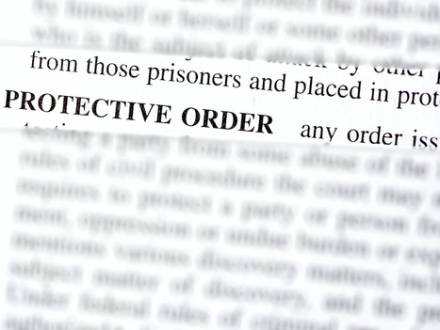Recent Blog Posts
How to Protect Your Separate Property in a Texas Divorce
 Property division is typically the most complicated and challenging part of divorce proceedings. Often, the longer you have been married and the more assets and debt you have, the more complex the process. To ensure that your separate property remains separate, you can take proactive steps, some even before you are married, to ensure that your investments are protected. If you have questions about protecting your property, a Tarrant County, TX property division attorney will explain the best options for your circumstances.
Property division is typically the most complicated and challenging part of divorce proceedings. Often, the longer you have been married and the more assets and debt you have, the more complex the process. To ensure that your separate property remains separate, you can take proactive steps, some even before you are married, to ensure that your investments are protected. If you have questions about protecting your property, a Tarrant County, TX property division attorney will explain the best options for your circumstances.
How Does Texas Law Define Separate Property?
According to the Texas Family Code, separate property is defined as property owned by one spouse prior to the marriage and property gifted to or inherited by one spouse during the marriage. Additionally, if you received an award or settlement for personal injuries while married, all of the money except for any compensation for the loss of earning capacity would remain yours.
Factors Considered When Deciding Custody in Texas
 Child custody can be a scary and unknown component of divorce for both parties involved. When both parents agree, the court will often accept the terms the parents create for their parenting plan, as long as the arrangement proves to be in the child’s best interest. If parents do not agree, the court will create a parenting order on their behalf.
Child custody can be a scary and unknown component of divorce for both parties involved. When both parents agree, the court will often accept the terms the parents create for their parenting plan, as long as the arrangement proves to be in the child’s best interest. If parents do not agree, the court will create a parenting order on their behalf.
To understand what a court may be likely to do in your case, it is useful to understand the factors that impact the terms of a custody order. If you have questions about your case, a Tarrant County, TX child custody attorney can help you understand the next best step.
Both Parents’ Situations and Abilities
Parents are under the microscope in custody cases for good reason. The court’s primary concern is to do what is best for the child. Some questions the judge will consider include:
-
Are both households stable and secure, or is one more stable than the other?
What if I Am Accused of Violating a Protective Order in Texas?
 Texas courts issue protective orders, commonly known as restraining orders, to protect individuals from threats or harm. While these orders are often considered a family law matter since they can be related to divorce or child custody disputes, violating a protective order is a criminal offense that can carry serious consequences. Understanding what constitutes a violation, the potential penalties, and available legal defenses is crucial for anyone facing such allegations. Speak with a qualified Texas criminal defense lawyer who also handles family law cases to learn more about this.
Texas courts issue protective orders, commonly known as restraining orders, to protect individuals from threats or harm. While these orders are often considered a family law matter since they can be related to divorce or child custody disputes, violating a protective order is a criminal offense that can carry serious consequences. Understanding what constitutes a violation, the potential penalties, and available legal defenses is crucial for anyone facing such allegations. Speak with a qualified Texas criminal defense lawyer who also handles family law cases to learn more about this.
What Are the Penalties for Violating a Protective Order?
Protective orders typically include specific conditions that you are obligated to follow. These can be requirements to stay a certain distance away from the protected individual; prohibitions against contact through phone calls, messages, or social media; and restrictions on firearm possession. Violating these conditions can result in serious penalties.
How Can Domestic Violence Affect Child Custody Modifications?
 Parents often think that once their divorce is finalized and custody arrangements are set, the hardest part is over. However, sometimes, patterns of domestic violence begin to emerge after the divorce. For example, one parent might notice signs of abuse or a concerning behavior pattern after the custody arrangement is already established. If that happens, that parent would naturally want to modify the custody agreement. An experienced and compassionate Texas family lawyer can explain more about how you can protect your child’s safety and well-being after your custody arrangement is already in place.
Parents often think that once their divorce is finalized and custody arrangements are set, the hardest part is over. However, sometimes, patterns of domestic violence begin to emerge after the divorce. For example, one parent might notice signs of abuse or a concerning behavior pattern after the custody arrangement is already established. If that happens, that parent would naturally want to modify the custody agreement. An experienced and compassionate Texas family lawyer can explain more about how you can protect your child’s safety and well-being after your custody arrangement is already in place.
What Happens When Domestic Violence Emerges After Divorce?
Sometimes the conditions spouses agree to in their divorce seem suitable at the time, but when changes occur, they may feel the need to modify them. For example, if one spouse was earning a significant amount of money and agreed to a generous alimony package but then got laid off and can no longer afford it, the spousal maintenance agreement can be modified.
Can I Be Charged With a Crime if Drugs Were Found in My Friend’s Car?
 People often think that if they are in a car owned by someone else and drugs are found, they cannot be penalized since it is not their car. However, that is not the case in Texas, where police can charge anyone inside the car with drug possession. This even includes passengers who do not own the car or the drugs. Facing charges for someone else’s drugs in someone else’s car can be extremely confusing and frustrating, but a qualified Dallas, TX criminal defense lawyer can review the case and protect your rights.
People often think that if they are in a car owned by someone else and drugs are found, they cannot be penalized since it is not their car. However, that is not the case in Texas, where police can charge anyone inside the car with drug possession. This even includes passengers who do not own the car or the drugs. Facing charges for someone else’s drugs in someone else’s car can be extremely confusing and frustrating, but a qualified Dallas, TX criminal defense lawyer can review the case and protect your rights.
What Is Considered Drug Possession in Texas?
According to Texas law, drug possession is when you have control over an illegal substance. There are two main types of possession, and they are described below.
Is Gray Divorce Worse Than Divorcing With Young Children?
 Although overall divorce rates in the U.S. are decreasing slightly, there were still almost 674,000 divorces in 2022, when the available data was last examined. Interestingly, the number of divorces for couples under 45 is on a downward trend, with the number increasing for couples older than 45.
Although overall divorce rates in the U.S. are decreasing slightly, there were still almost 674,000 divorces in 2022, when the available data was last examined. Interestingly, the number of divorces for couples under 45 is on a downward trend, with the number increasing for couples older than 45.
The children of any divorcing couple, regardless of age, are impacted in several ways. The effects are markedly different, though, for young versus adult children. As parents, you likely want to minimize the adverse effects your divorce will have on your family. A skilled Dallas, TX divorce attorney understands the difficult decisions you are facing and can help you reach tailored solutions to reduce your and your children’s stress.
How Is Child Support Calculated in Texas?
 One of the most pressing questions parents have when they go through a divorce is how it will affect them financially. There can be a great deal of anxiety and confusion around things like child support, how much you might have to pay, and for how long. Generally, the noncustodial parent makes these payments to the custodial parent, but other than that, there can be a lot of uncertainty. Fortunately, a knowledgeable Texas family law attorney can explain what goes into those decisions and help you have reasonable expectations.
One of the most pressing questions parents have when they go through a divorce is how it will affect them financially. There can be a great deal of anxiety and confusion around things like child support, how much you might have to pay, and for how long. Generally, the noncustodial parent makes these payments to the custodial parent, but other than that, there can be a lot of uncertainty. Fortunately, a knowledgeable Texas family law attorney can explain what goes into those decisions and help you have reasonable expectations.
How Do Your Net Resources Impact Your Child Support Payments?
The first factor in Texas child support calculations is what the paying parent’s net resources are. First, all their sources of income are calculated. These can include their salary – including bonuses and commissions, investment income, retirement benefits, social security benefits, and unemployment benefits.
How Can I Get My Texas DWI Conviction Overturned?
 As with any type of criminal charge, it can be extremely overwhelming to face a DWI conviction, but you may have options. In fact, depending on the specific details of your case, you might be able to get your conviction overturned. While this can be difficult to achieve, it is possible given the right circumstances and legal representation. If you believe you were unfairly convicted and want to explore ways to have your conviction overturned, speak with a proven Dallas, TX DWI defense lawyer to learn more.
As with any type of criminal charge, it can be extremely overwhelming to face a DWI conviction, but you may have options. In fact, depending on the specific details of your case, you might be able to get your conviction overturned. While this can be difficult to achieve, it is possible given the right circumstances and legal representation. If you believe you were unfairly convicted and want to explore ways to have your conviction overturned, speak with a proven Dallas, TX DWI defense lawyer to learn more.
How Do You Appeal a DWI Conviction in Texas?
When someone is convinced they were wrongly convicted, they have the legal right to request an appeal, which would mean that a higher court will review the conviction and see if there is any reason to overturn it. An appeal does not mean your case will be retried. The court will not accept any new evidence or testimony but will review the transcripts of your case and the attorneys’ briefs to see whether any misconduct or misapplication of the law led to a wrongful conviction.
How Long Does It Take to Finalize a Divorce in Texas?
 Everyone has something that makes them unique. The same is true for marriages and divorces. The time it takes to finalize a divorce in Texas can vary depending on several factors, including the complexity of the case, whether the divorce is contested or uncontested, and how quickly the couple can reach an agreement.
Everyone has something that makes them unique. The same is true for marriages and divorces. The time it takes to finalize a divorce in Texas can vary depending on several factors, including the complexity of the case, whether the divorce is contested or uncontested, and how quickly the couple can reach an agreement.
Some couples can resolve their divorce in a matter of months while others can take a year or longer. For a better idea of how your divorce timeline might look, speak with a knowledgeable Tarrant County, TX divorce lawyer who can review your case and guide you further.
60-Day Waiting Period
Texas has a mandatory 60-day waiting period from the date someone files a divorce petition until the divorce can be finalized. This applies to all divorces, even when both spouses agree about everything. This waiting period is meant to give couples time to reflect, in case they want to reconsider their decision to divorce.
Three Unseen Consequences of a DWI in Texas
 For most people, hearing about a DWI (Driving While Intoxicated) charge in Texas immediately makes them think about someone paying a hefty fine and spending time in jail. Those are of course serious consequences, but they are not the only ones.
For most people, hearing about a DWI (Driving While Intoxicated) charge in Texas immediately makes them think about someone paying a hefty fine and spending time in jail. Those are of course serious consequences, but they are not the only ones.
A DWI can lead to far-reaching effects that can last long after the court case is over. If you are facing DWI charges, the stakes are too high not to protect yourself with strong legal representation. Speak with a qualified Dallas, TX criminal defense lawyer to understand your options.
Loss of Driver's License
One of the most impactful consequences of a DWI charge is having your driver's license suspended. If you are arrested for DWI, the Texas Department of Public Safety will suspend your license. This happens automatically, before your trial. It can be suspended for anywhere from 90 days to 2 years, depending on the circumstances.







 469-845-3031
469-845-3031


